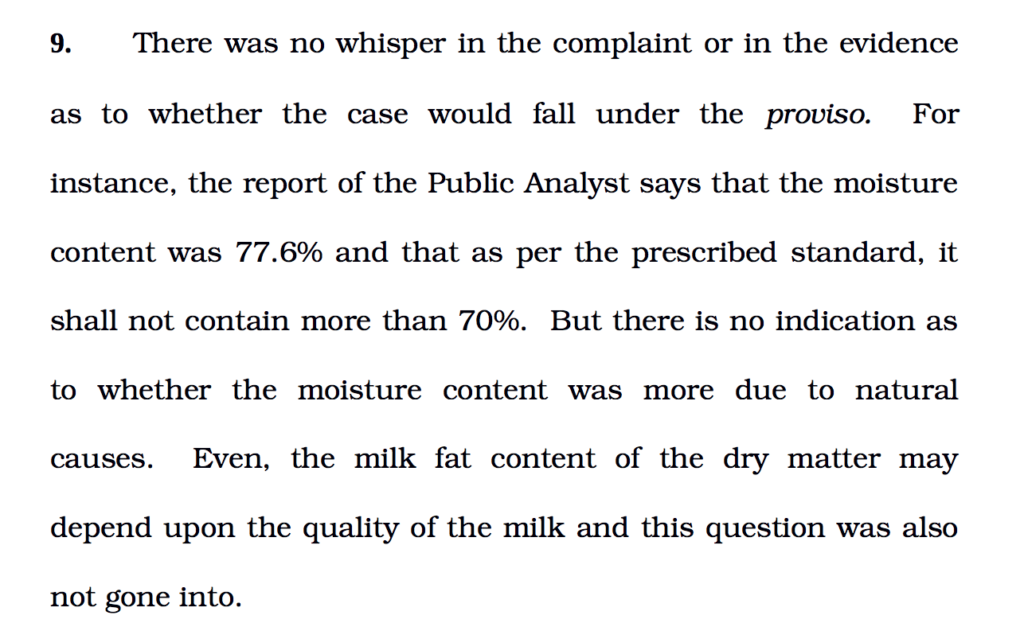The conviction a person for food adulteration on the ground that moisture content in the paneer sold by him exceeded the prescribed limit of 70 percent, was quashed by the Supreme Court last week [Bhattacharjee Mahasya and anr vs State of West Bengal and anr].
A bench of Justices S Abdul Nazeer and V Ramasubramanian said that the expert evidence did not take into consideration the proviso to Section 2(ia)(m) of the Prevention of Food Adulteration Act which exempts adulteration due to natural causes beyond human control.
“There was no whisper in the complaint or in the evidence as to whether the case would fall under the proviso. For instance, the report of the public analyst says that the moisture content was 77.6% and that as per the prescribed standard, it shall not contain more than 70%. But there is no indication as to whether the moisture content was more due to natural causes. Even, the milk fat content of the dry matter may depend upon the quality of the milk and this question was also not gone into,” the apex court said.
The appellant Bhattacharjee Mahasya moved the Supreme Court after a Magistrate had convicted and sentenced them to two years in prison, which was upheld by the Sessions Court and later partially modified by the Calcutta High Court, which reduced the punishment to three months.
A complaint had been filed against the appellant stating that paneer stored in his shop for sale was found adulterated.
In order to ascertain the same, the food inspector purchased 750 grams of paneer from the shop and sent it for examination by the public analyst in the office of the Local Health Authority.
The public analyst submitted the following report:

“The sample of paneer does not conform to the prescribed standard in respect of moisture and milk fat content of the dry matter. Hence, it is highly adulterate.”
On the basis of the opinion of the analyst that deemed the moisture content of the paneer at 77% which was above the prescribed limit of 70 percent, and prosecution was launched.
This led to the conviction of the appellant.
The Court, however, said that the whole case was ‘much ado about nothing’ since the courts below failed to consider the exemption provided by the proviso to Section 2(ia)(m) which protects deterioration of food articles due to natural causes.

“Therefore, we are of the view that a petty shop owner has been prosecuted by making much ado about nothing. Hence, the appeal is allowed and the impugned order of the High Court confirming the order of the Sessions Court and the order of the Magistrate are set aside,” the Court ordered.
Advocates Soumya Dutta, Rohit Bansal, and Harsh Bansal appeared for the petitioners. Advocates Kunal Chatterji, Maitrayee Banerjee and Astha Sharma represented the respondents.
source: Bar and Bench 26th oct 2022 by Abhimanyu Hazarika

